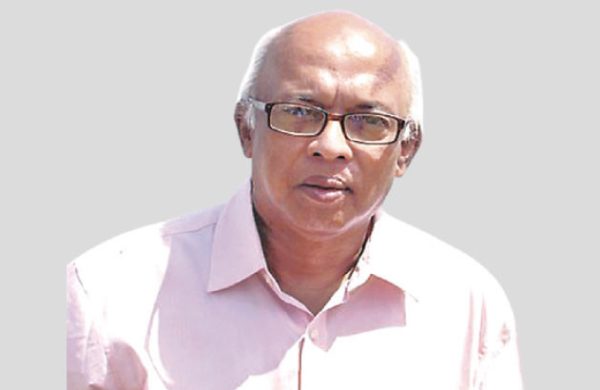We must stop the infighting to retain buyers
- Update Time : Wednesday, September 11, 2024

–Mostafiz Uddin–
Bangladesh has been through an extremely challenging situation recently, especially with the change of leadership brought forth by a student-led mass movement. As a business community, we should now be looking forward to the coming months with a sense of optimism. For the ready-made garment (RMG) sector, this is a crucial period as apparel manufacturers look to complete autumn and winter orders.
Therefore, it is frustrating to see that pockets of unrest continue, leading to closures of garment factories, which are already under tremendous pressure of completing their work orders. This is taking place at a time when the nation is facing numerous economic challenges. When foreign exchange reserves are a big concern, creating trouble in the garment sector will deal a heavy blow to the economy and the country as a whole.
The recent labour unrest in garment factories of Dhaka’s Ashulia and Gazipur has been attributed to a power struggle between local thugs with differing political allegiances. Some ringleaders are allegedly attempting to assert dominance after the regime change and their rivalry has intensified the unrest.
According to the Bangladesh Garment Manufacturers and Exporters Association (BGMEA), the protests began at the Dhaka EPZ gate, where demonstrators demanded jobs. The unrest spread to nearby factories, although initial impacts were minimal.
On August 31, workers from a major exporter began vandalising factories, according to industry insiders, workers, and law enforcement reports. They forced other factory owners to close their factories and urged workers to join the protests. Violence erupted as owners and workers resisted the shutdown, resulting in more vandalism. Some unrest has persisted since then, with some factory closures. Garment manufacturers have held separate meetings with government officials and law enforcement agencies since then.
Industry insiders believe the police should ensure factory security, but some officers were involved in violent crackdowns during the student uprising, which may have left them feeling hesitant to confront workers. Although the Bangladesh Army has been deployed nationwide, it is more challenging for them to manage the situation without sufficient police support.
So, what now? My personal perception is that global apparel buyers have faith in the Yunus-led government, and orders continue to be placed. However, it is frustrating to see that a vested group is attempting to further destabilise the garment sector.
Moreover, these ongoing tensions between political factions in Bangladesh pose a significant threat to Bangladesh’s reputation, especially at a time when it must present a unified and stable front to retain the trust of international fashion buyers.
The RMG sector, which accounts for over 80 percent of Bangladesh’s export earnings, is the backbone of the nation’s economy. Any instability in this industry directly impacts not only the livelihoods of millions of workers but also the broader economic prospects of the country. For global fashion brands, who rely on consistency, reliability, and timely delivery from suppliers, such infighting sends the wrong message.
Political unrest, labour strikes, and factory closures signal an unpredictable business environment. International buyers, operating in a highly competitive market with tight deadlines, cannot afford disruptions in their supply chains.
This does not bode well for Bangladesh, especially when other nations such as Vietnam, India, and Cambodia, are emerging as competitors in the global garment industry. These countries present themselves as stable, reliable alternatives, further exacerbating Bangladesh’s challenges in maintaining its market share. Infighting within the RMG sector weakens the industry’s competitive edge by diverting attention away from productivity and innovation and toward internal strife. The situation is particularly concerning given the country’s dependence on international buyers, many of whom have voiced their support for ethical and sustainable sourcing practices.
To maintain its position as a global leader in the garment industry, Bangladesh must prioritise unity and stability. The government, industry leaders, and political factions must work together to create an environment conducive to business, signalling to the world that Bangladesh is a trustworthy and dependable partner. If the country fails to present a unified voice, it risks losing the confidence of global buyers, leading to devastating economic consequences for millions of workers and the nation as a whole.
In the past few weeks, buyers, NGOs, and rights groups have urged fashion brands to stand by Bangladesh amid its change of leadership. But we must repay this loyalty by providing a stable and reliable business environment. Major customers are supportive of our efforts but there is only so much they will tolerate before saying: enough.
Mostafiz Uddin is the managing director of Denim Expert Limited. He is also the founder and CEO of Bangladesh Denim Expo and Bangladesh Apparel Exchange (BAE).



















